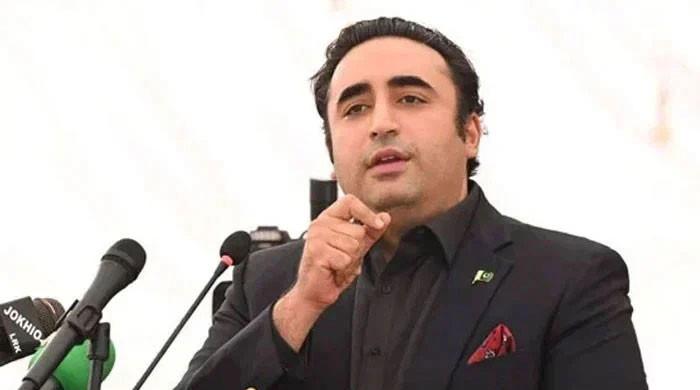PPP Chairman Criticizes India’s Actions on Indus Water Treaty
ISLAMABAD: Following India’s announcement to hold the Indus Water Treaty in abeyance after the Pahalgam incident, Pakistan Peoples Party (PPP) Chairman Bilawal Bhutto-Zardari stated that New Delhi’s recent independent actions would result in its isolation on national and international levels.
The former foreign minister commented during a television program that such measures were not implemented even during wartime. He added that India’s current behavior is exceptional and demonstrates a focus on exploiting terrorism for political advantage rather than addressing it.
The warning was issued after a deadly attack in Indian Illegally Occupied Jammu and Kashmir (IIOJK), where numerous tourists were killed at a popular location in the Pahalgam region, including a foreign national.
In response to the attack, India implemented independent and unsubstantiated measures against Pakistan, which included suspending a water-sharing agreement, declaring the closure of the primary land border crossing, reducing diplomatic relations, and retracting visas.
Pakistan has responded by expelling Indian diplomats and military advisors, nullifying visas for Indian citizens with an exception for Sikh pilgrims, and closing the main border crossing from its side.
The United Nations (UN) has appealed to both Pakistan and India to exercise extreme caution and emphasized that all matters between the two countries should be resolved peacefully through constructive mutual discussions.
During the program, Bilawal emphasized that India does not have the power to independently suspend the Indus Waters Treaty, pointing out that the agreement is internationally recognized and involves other signatories such as the World Bank.
Bilawal asserted that using water as a weapon during a period when the entire world is threatened by climate change is irresponsible and unethical.
He further added that future generations would be trapped in a cycle of conflict if wars were fought over water. He said that no nation would support actions aimed at undermining an internationally recognized water-sharing agreement.
The PPP chairman also stated that history has revealed India’s disinterest in peace and its active efforts to undermine the internationally recognized status of IIOJK. He noted that the revocation of Article 370 was not an action against terrorism but rather a crackdown on peaceful protestors and political leaders.
Bilawal argued that India is attempting to obscure the distinction between legitimate resistance and terrorism, thereby avoiding its international legal obligations in Kashmir by constantly blaming Pakistan. He added that while they think they were previously successful and can continue to repeat such behavior, the world is now aware of their tactics.
He further stated that while the world stands united in condemning acts of terror, no one is willing to support India’s independent initiative to politicize shared resources or violate international agreements.
Regarding the controversial canals project, Bilawal stated that the federal government had made a responsible decision, and any final approval would be processed through the Council of Common Interests (CCI).
He concluded by saying that an agreement has been reached that no new canal will be built without mutual consent and that unilateral decisions are ineffective in a democracy.
He indicated that certain entities are attempting to incite regional tensions, especially between Sindh and Punjab, for their own purposes and that such detrimental forces will be addressed politically.



Comments (0)
No comments yet. Be the first to comment!
Leave a Comment